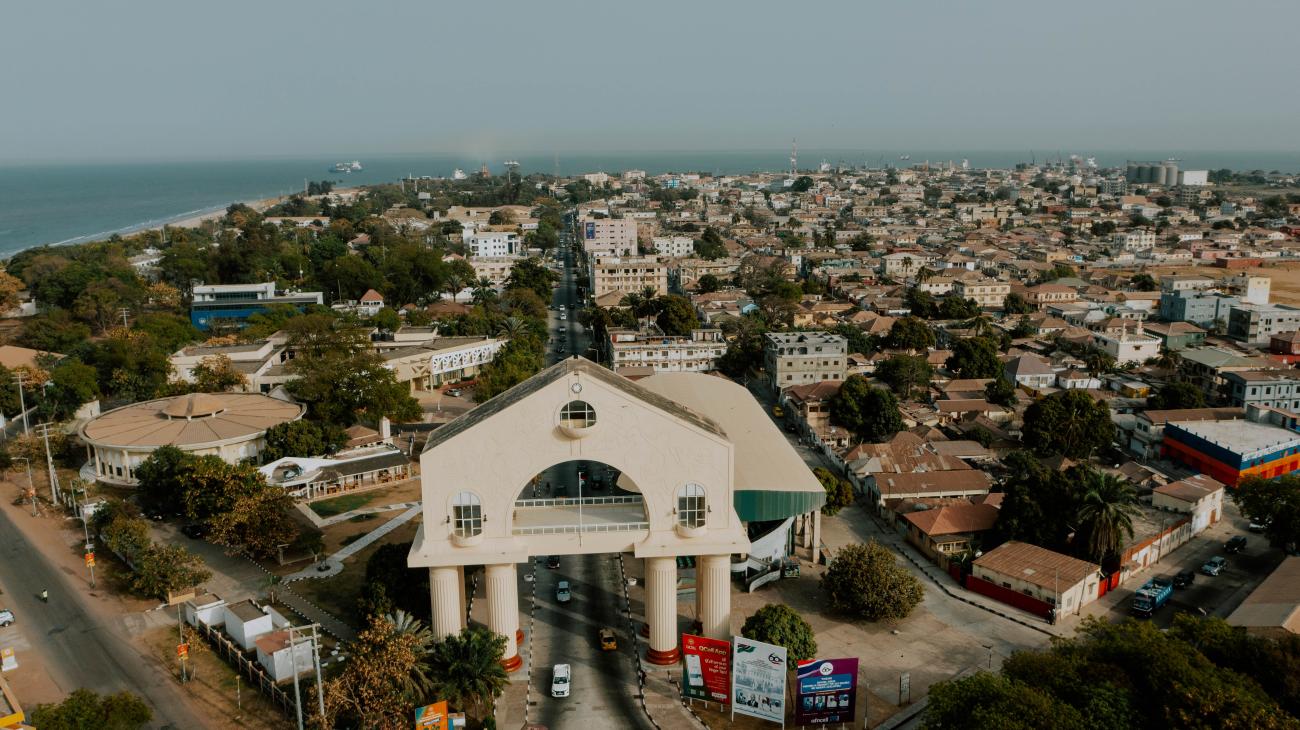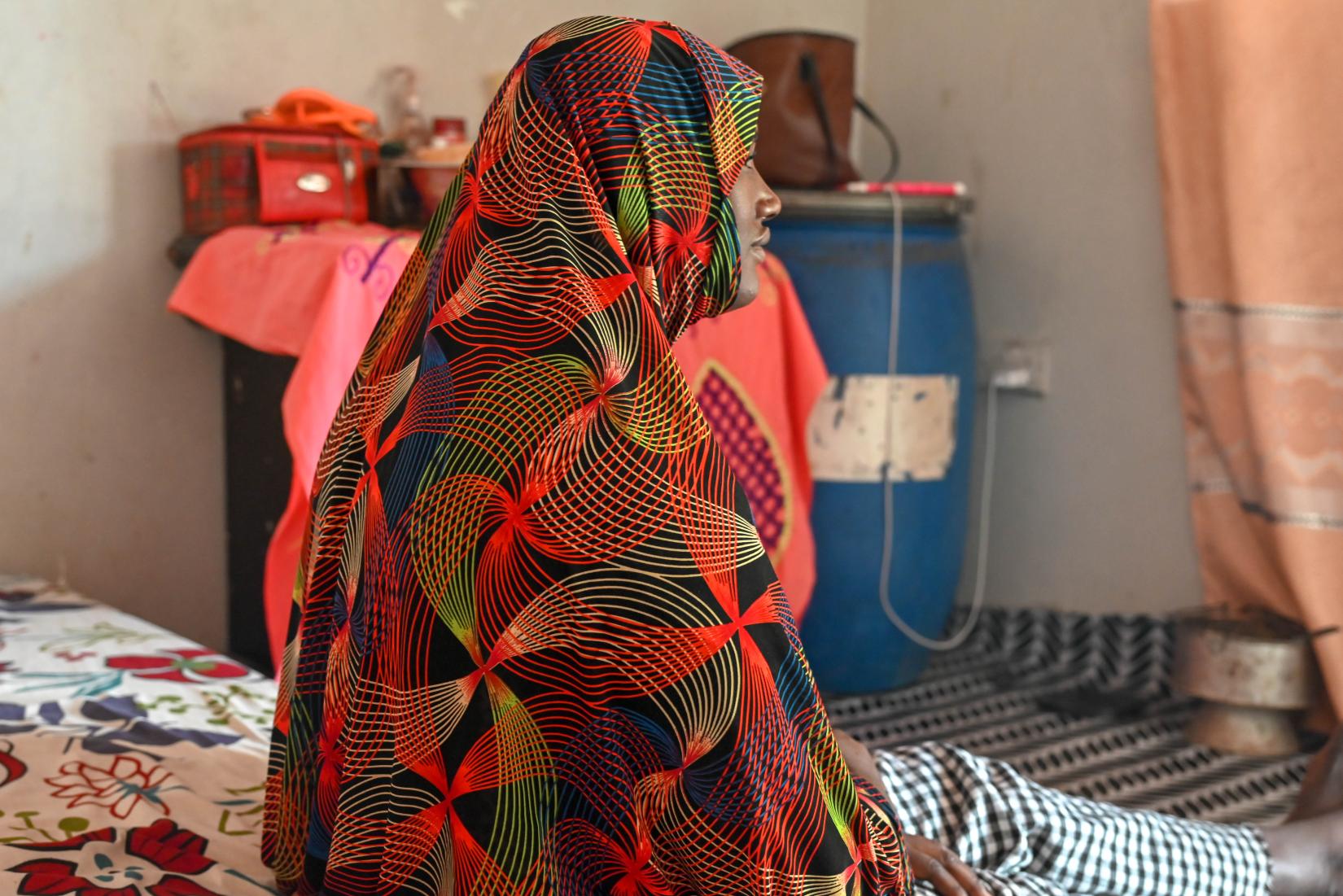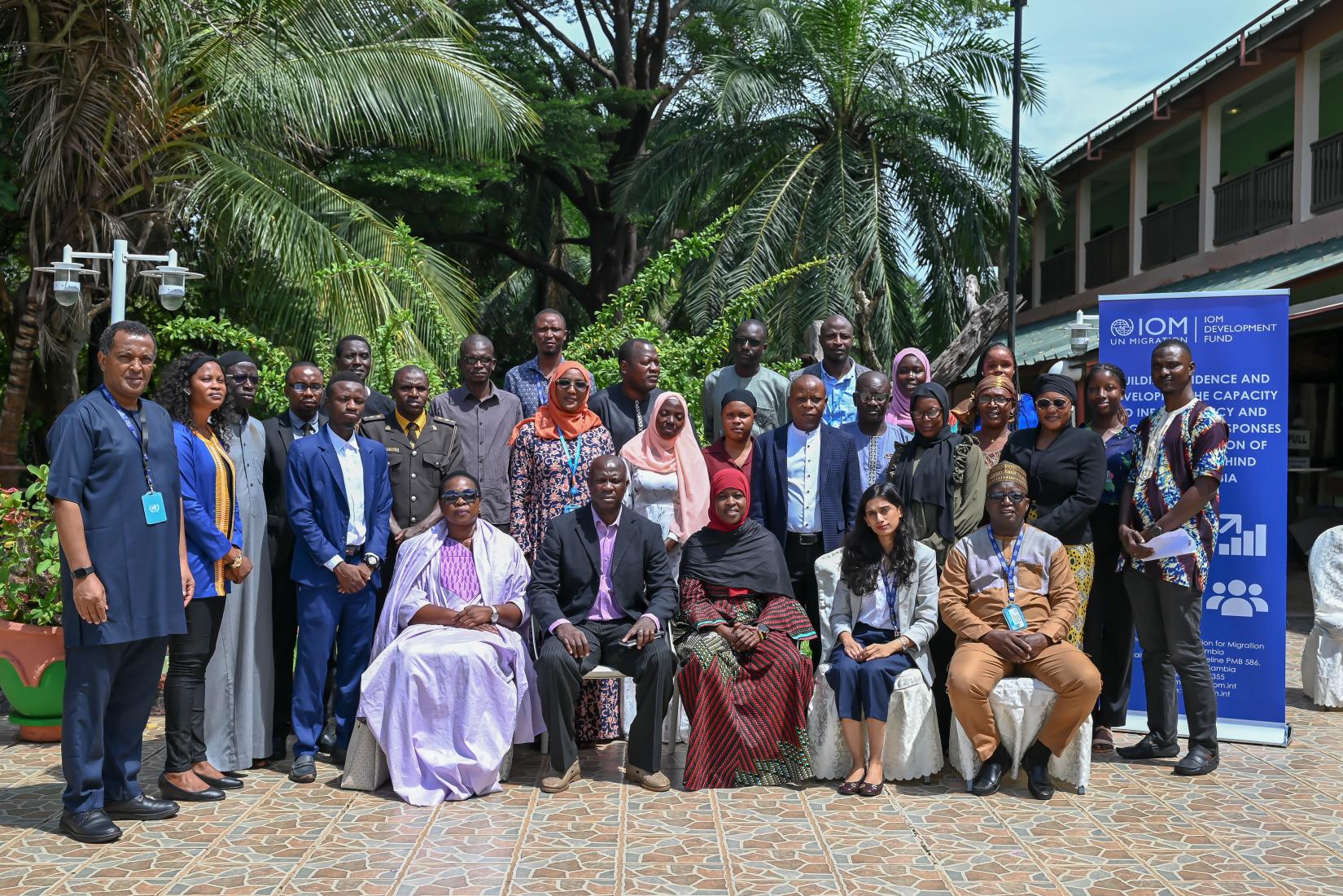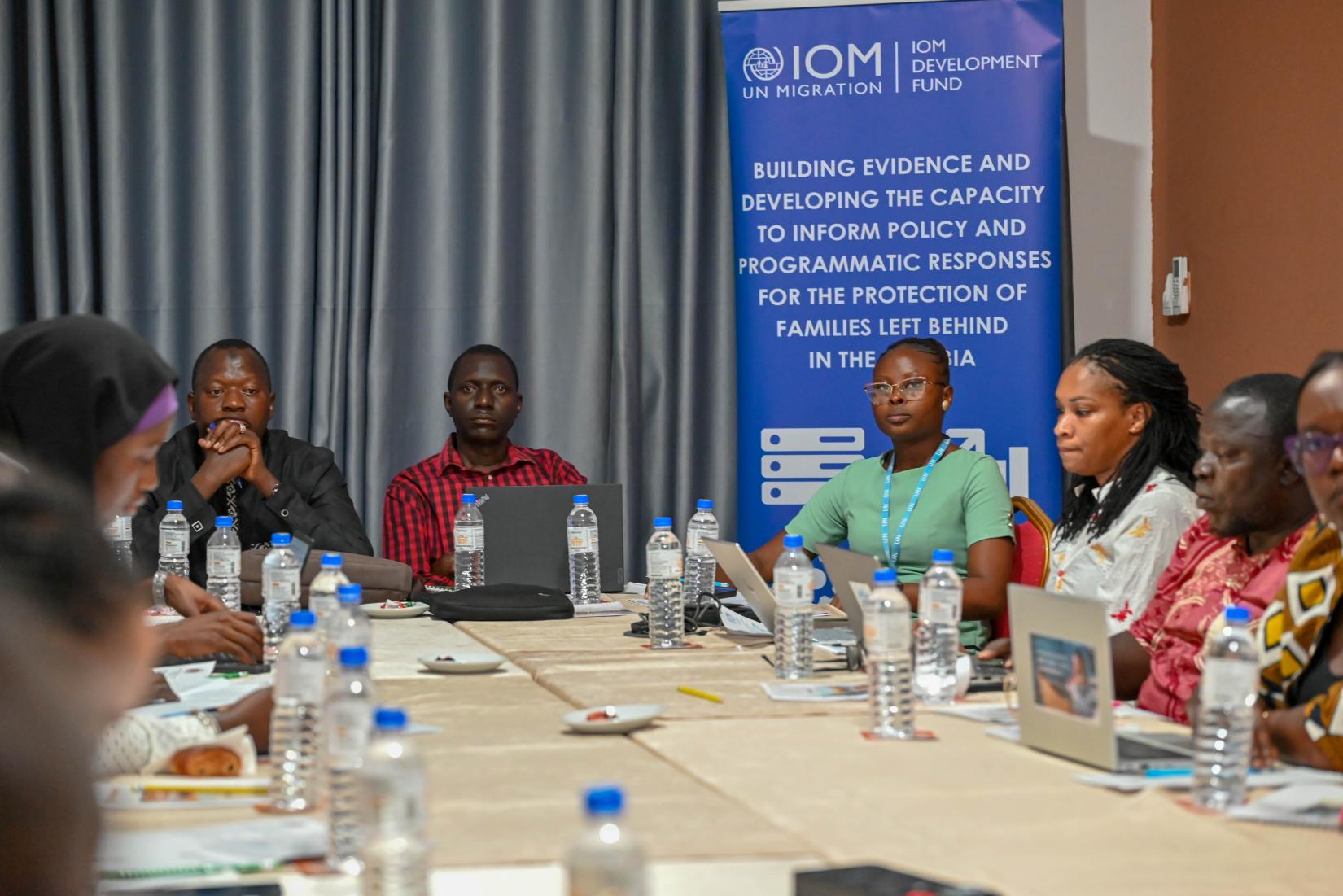The Dual Burden of Migration: Understanding the Plight of Families Left Behind in The Gambia

IOM
“Your father accepted your hand in marriage on your behalf, in fact, your soon-to-be husband is abroad. You’ve made us all proud!”
On the only mattress in her one-bedroom apartment — shared with her mom, sister and daughter — Tida Sonko* vividly recalls the night her parents agreed to her bride price. For her mother, it was a moment of immeasurable joy, fulfilling what she considered a treasured societal parental obligation: raising a daughter and witnessing her marriage.
Tida knew little about her soon-to-be husband, apart from the fact that he had been living in Côte d’Ivoire for a decade. Though this caused her some anxiety, the enthusiasm of her parents, friends and relatives gradually dispelled her unease. Their celebration of marrying a man abroad overshadowed her initial doubts.
“I never met the man, so I had no idea who I was marrying,” she admits. “This made me uncomfortable initially, but almost everyone told me he’s abroad so my life will be transformed,” she adds.
In late 2019, Tida’s traditional wedding took place. Her husband Karamba Saidy* returned to The Gambia to meet his bride for the first time. He stayed for a little over three months before heading back to Côte d’Ivoire, promising Tida — pregnant at the time — that she would join him soon.
Now, five years later, Tida is still waiting for Karamba’s return. She has been left with the full weight of managing her household and caring for her mom, sister and daughter. This includes responsibilities like domestic care work, education, healthcare and meeting daily needs. With her husband’s ongoing struggles in Côte d’Ivoire, Tida sees no signs of improvement in her situation. Additionally, her worries are compounded by societal expectations that a husband living abroad should consistently send money home. The pressure from Tida’s community stems from a stigma associated with her circumstances, making it difficult for her to seek assistance and overcome the status quo.

“My husband does not have any decent job and therefore is unable to take care of us,” she says. “I cannot explain this to everyone because society has certain expectations, this makes our circumstances hard,” she adds.
Tida and her family’s reality is no different from many in The Gambia, where many (male) spouses migrate, leaving women and families to face relentless challenges in meeting their basic needs.
According to the UNDESA, there are about 72,000 Gambians living outside their country of origin in 2024. Tida’s case exemplifies a widespread issue: families left behind by Gambian migrants face a dual burden of economic hardship and the absence of the household primary caregiver — quite often a husband and a father.
In response to this complex issue, IOM The Gambia launched a targeted project in January 2024. Partnering with the Ministry of Interior, the Ministry of Gender, Children and Social Welfare and supported by the IOM Development Fund, this research and capacity development project — Building Evidence and Developing Capacity to Inform Policy and Programmatic Response for the Protection of Families Left Behind in The Gambia — set out to better understand and address the challenges faced by these families.

“Ensuring migration is well-managed to benefit all is top priority for us as a Ministry and Government. We cannot deliver our shared objectives in this without mechanisms — including policies and programmes for the protection and safety of women and children in vulnerable conditions as a result of migration.”
Abraham K Mendy, Deputy Permanent Secretary, Ministry of Interior, The Gambia
This initiative seeks to overcome the challenges of finding evidence on migration’s impact on vulnerable families. By focusing on gender-sensitive approaches and targeting the Central River and Upper River Regions, it aims to support the government’s efforts to protect families left behind while enhancing their role in sustainable development.
“We recognize the importance of migration to the socioeconomic development of The Gambia, and this even needs further harnessing; however, we cannot lose sight of vulnerabilities as a result of migration, especially on women and children. We cannot address these without evidence, hence the significance of this project.”
Marie Stella Ndiaye, Programme Manager, IOM The Gambia
In June 2024, IOM and partners began conducting an assessment that collected key information from a cross-section of the Gambian society. The findings underscored the unique challenges and opportunities migration creates for families left behind. Women, particularly wives of migrants, are disproportionately affected. It was found that females make up 55.3 per cent of family members left behind, and that wives account for 81.7 per cent of spouses left behind. This highlights the gendered dimensions of migration and the importance of evidence-based research on these issues.
The project involved capacity development activities targeting government officials, state and non-state actors to improve the general understanding of the protection of women and children’s rights. These also aimed to improve the impact of migration on families left behind.

By reinforcing its commitments, IOM, alongside the government, has taken significant strides towards strengthening policies and programmes aimed at social protection and safety nets — particularly for women and children.
While Tida’s story is emblematic of a wider reality, these efforts align with key frameworks, including the Government’s Recovery Focused National Development Plan RF-NDP (2023–2027), the United Nations Sustainable Development Cooperation Framework (UNSDCF) 2024–2028, the Global Compact on Migration (GCM) Objectives 2 (Minimize Adverse Drivers), 6 (Recruitment and Decent Work), 7 (Reduce Vulnerability), and 22 (Social Protection), and the Sustainable Development Goals.
Written by













